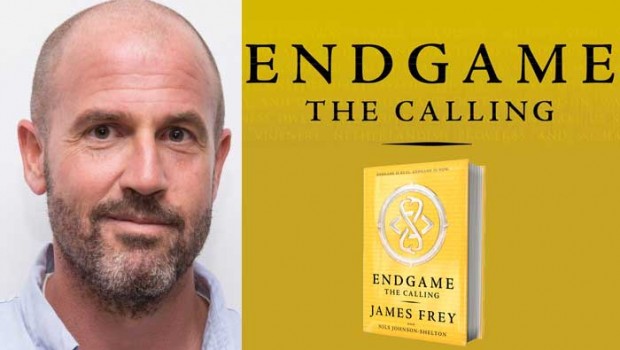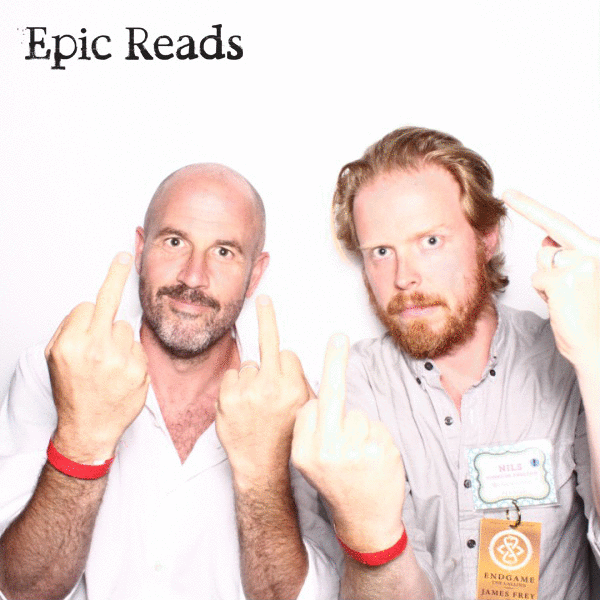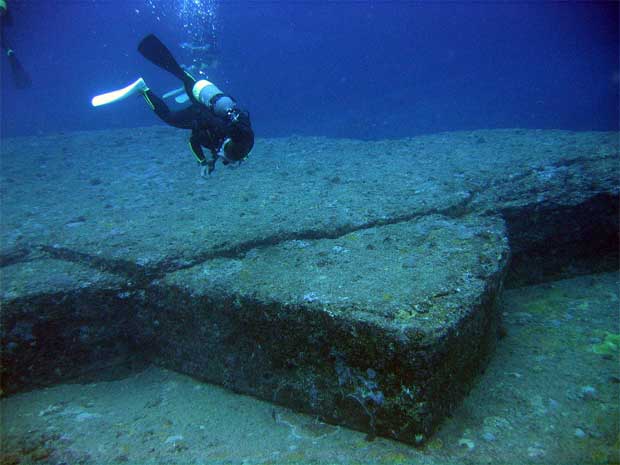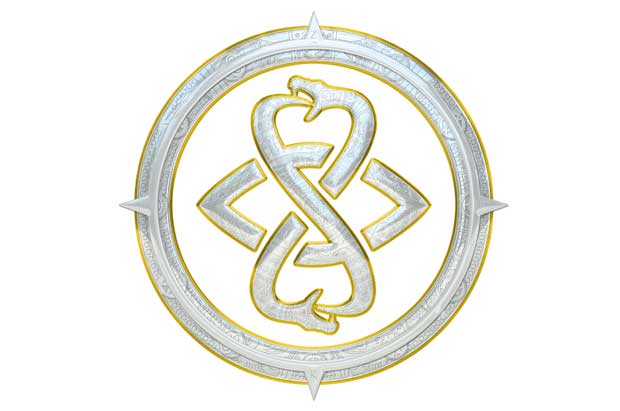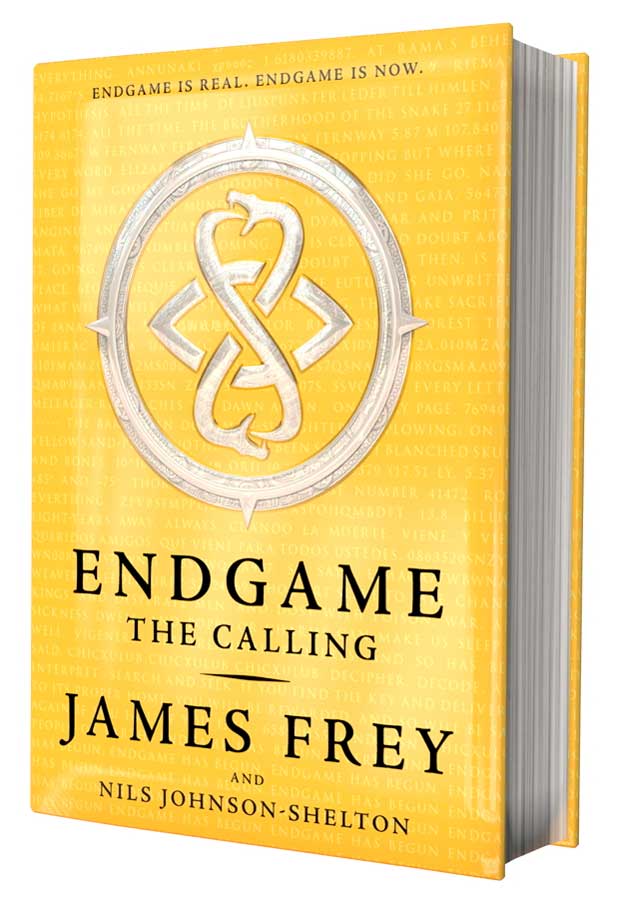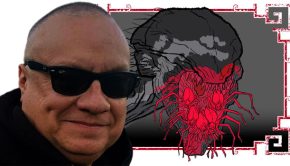James Frey Endgame Interview
Welcome to Impulse Gamer James!
Thanks! So sorry this interview slipped through the cracks. Your review was awesome. Thank so much for you for it. Every bit of positive press counts!
So how excited are you for the official launch of Endgame in October?
Very. Depending on the day I’m either terrified or just super psyched. I’ve been working on this in some shape or form for three years, and now it’s finally coming out. It should be quite a trip.
Having read the novel (loved it)… can you tell our readers a little about what Endgame is about?
Thanks for loving it! We hope it gets a lot of that. The books basically tell a scifi story that starts in our world as it exists today. They follow 12 teenage “Players” who, once called to action by an enigmatic alien known as kepler 22b, engage in a global scavenger hunt for three keys. There are no rules for how to play Endgame—alliances can be formed or broken; Players can kill, capture, torture, help, support, use, or betray each other or anyone else; they can be passive in their style of play or active. The only requirement is that the three keys be found in order and then brought to kepler 22b at an as yet undisclosed location. Whichever Player does this will win Endgame.
But what is Endgame? It’s basically based on the ancient aliens theory of human evolution. This postulates that about 12,000 years ago a highly intelligent alien race visited earth and tinkered with our DNA, changing the way our brains work and completely changing the way our culture would evolve. This is pretty easy to dismiss as a conspiracy theory, but I don’t really care. I love conspiracy theories. If nothing else, they make for great stories.
And there’s some evidence that it could be true. After the Human Genome Project finished decoding our DNA, they tried to figure out how we’d evolved or if we’d evolved at all. After all, humans that look like us have been around for a couple hundred thousand years, but humans that think like us have only been around for, you guessed it, about 12,000. And when these scientists started investigating our genetic past what they found was that around 12,000 years ago our cognitive brain function changed drastically and suddenly. How and why it changed they don’t know, but the change bore all the hallmarks of genetic engineering. Around this time, the first human civilizations started to pop up around the globe, agriculture started to happen, and stone working and language and eventually metal working and writing and all the rest. Stranger still is that these civilizations formed around gold mines. No one knows why, since gold isn’t functional at all. It’s pretty and all but it can’t be formed into anything useful like an ax or a hammer, and it’s only valuable because we say it is.
Also around this time, the world’s origin myths began to come into existence. No matter how disparate, these are strikingly similar: an omnipotent being descended from the heavens and gave us the spark of life, gave us our soul, gave us rules to live by. And then it left. But before it left it told us that one day it would return, and when it did return it would be a day of reckoning. This story has been woven into just about every major religion. We’re tailing about nothing less than Judgment Day.
So for Endgame we said: what if all this were in fact true? What if some higher form of intelligence actually did visit earth in the distant past, conducted a genetic experiment on the homo sapiens running around, taught us some pretty advanced tricks, asked us to mine gold for it for whatever reason, and then left? Is that any more or less plausible than pure natural selection? Ancient alien theorists still believe in science and in the theory of evolution, but they also think that some of our ancestors were artificially selected by our ancient aliens visitors. Endgame begins in a world that is exactly like our own, but where this did in fact happen, many thousands of years ago. And now, for reasons not yet known, our alien creators are returning to Earth to start Endgame.
That’s the basis of the story in the book. But a lot more is happening in the world of Endgame. There’s a puzzle built into the book that carries a prize of $500,000 in gold coins for the first person to solve it. There’s an Alternate Reality Game and mobile game from Google’s Niantic Labs. There are novellas, social media feeds for the characters, YouTube videos and more. Endgame is more than a book. Much more.
Official Endgame the Calling Trailer
How did you become involved in Endgame?
It’s my idea. I’d been kicking the idea of a book with a puzzle around for a while and then when the iPad came out I just knew I had to do something like this. I thought about it for a few years and then started talking to people. I wouldn’t have been able to do any of this without people like Nils and everyone at Full Fathom Five; or without John Hanke and Jim Stewartson and their teams at Google; and especially without the amazing work of Mat Laibowitz and Adam Sussman and everyone at Futuruption, who created a beautiful and challenging and amazing puzzle.
So how do you and co-author Nils Johnson-Shelton share the writing duties?
I provided the basic idea and story arc, then we did outlining work together and decided which 12 ancient cultures to use as our lines and did some basic character development. Nils took it from there and wrote the first few drafts. I took it from him and did the last few drafts. We eventually went through the usual editorial process with the publishers, and that was about it. Nothing too cryptic or out of the ordinary.
What kind of research did you and Nils do for Endgame?
A lot on the Internet, and some in magazines and books and television shows. We didn’t travel to any of these places, although between Nils and me we’ve been to a few of them in the book, like Gangtok, India and Omaha, Nebraska, among a few others. In much the same way that the larger scope of this project is intended to make use of the Internet, as well as all these wonderful supercomputers we carry around in our pockets, there’s no way we could have written this book without online resources. We’ve gotten lost in Google Maps and countless conspiracy-oriented websites. There is so much out there.
James Frey and Nils Johnson-Shelton – Photo(s) courtesy of Epic Reads
Without spoiling the book who is your favourite player and why?
In book one, Chiyoko Takeda, the Mu. She’s badass. Doesn’t take any shit. And she’s a mute.
Most diabolical?
An Liu, without doubt.
Sarah and Jago are the two main protagonists in the novel, what drew you to them the most?
I wouldn’t say that we were drawn to them the most, even though they do feature heavily in book one. We were just as drawn to An and Chiyoko, for example, and there’s more to come from the likes of Hilal and Aisling and Alice and Shari. But why did we choose them over the others to put at the center of book one? Partly because Sarah is the “American” character, and for that reason is most relatable for a wide swath of the world’s largest market. Jago was probably more organic. We put him on a train pretty early in the book with Sarah and a spark lights up between them. We decided to run with that and see where it goes.
Both you and Nils captured a real sense of humanity in each of the players, how did you come up with the various lineage and motivations of each of the players?
Thank you! We looked for the cultural lineages together and picked them for various reasons. Since the story is global in scope we wanted the cultures to represent a big chunk of humanity. So one Player’s from Australia, three are from Asia proper, one from India, two from the Middle East, two from Europe, one from Africa, one from North America and another from South America. It’s an international cast. Some were no-brainers, like the Sumerian or the Minoan or the Celt—these are really old cultures—and some are maybe less expected—like the Mu or the Donghu or the Cahokian. There weren’t really any common criteria, but it helped if the culture had pyramids or mounds or neolithic stone or earth structures in its history. We’d pick other cultures if they had more explicit connections to supposed ancient aliens, like the Sumerians. We picked some just because they were obscure—the Aksumites instead of the Egyptians, for example. Egyptian would probably have been too expected. Or the Mu, which isn’t a historical culture so much as it’s a myth. If you want to have your mind blown a little, Google “Yonaguni Monument” and see what I mean. In Endgame, the Mu once lived in that place, a long, long, long, long time ago.
As for their motivations, we knew some would be “good” and some would be “bad,” although as the book progress we hope to make these distinctions a little fluid. Regardless, we’re dealing with a group of assassins who believe that they can save some portion of humanity at the end of the world. A fair number of them outright psychopaths and/or sociopaths. Some of them struggle with these demons, some run headlong toward them, arms open. Some approach Endgame with reverence, and don’t take killing lightly, others crave death. One is essentially a pacifist. A few are empathic, even altruistic. One can’t talk. One suffers from near-debilitating facial and verbal tics. Like the real world, Endgame takes all kinds.
In the novel, you’ve mentioned the Chinese Pyramids, Atlantis and Stonehenge, what made you link these cultures with the novel?
Whatever you believe about the ancient and prehistorical world, if you think about it at all, it’s undeniable that there is a ton of unexplained shit out there. A ton. And once you start looking it’s hard not to see. For instance, how many people even know there are ancient pyramids in China? And how many would believe that there are dozens of them there? Did you know that there is a blacked out section of satellite imagery that hides a huge white pyramid, hardly ever seen by anyone outside of China? Everyone knows Stonehenge, but does everyone know that they still aren’t sure who made it or what it was really used for or that recent scans of the land around Stonehenge reveal a vast, probably interconnected network of other ancient neolithic sites, long since buried and forgotten? Why does nearly every ancient culture talk about a great flood, and about cities that were wiped out by it? Not just Atlantis, but Yonaguni, Dwarka, Atlit-Yam Haifa, the mysterious ruins off Cuba? Is it because maybe there were cities scattered all around the globe that were thriving ten, or fifteen, or even twenty thousand years ago, and that these were all lost during the great melt at the end of the last ice age? There are so many, many questions out there.
Although there is a small parallel to The Hunger Games (quite miniscule), I actually saw more parallels with Erich von Däniken’s Chariots of the Gods. Was he an inspiration to the story of Endgame?
Absolutely. That book is incredible. And we agree that, beyond the fact that the contestants are young, and that the word “game” is in both titles, there is very little in common with Hunger Games.
Will we see more Sky People in the second novel?
Just a token appearance. We may see more of them in book three, though.
Kepler 22b plays an integral part of Endgame as one of the Sky People but it’s also a real planet in the Cygnus system, was this coincidence or is this part of the super puzzle?
Kepler 22b is also firmly seated in the “Goldilocks Zone,” which is what scientists call the area that a planet can inhabit that might make it “just right” for life to exist—maybe even for intelligent life to exist.
But to answer your question, no, it is not a coincidence. Whether it has anything to do with the puzzle, I can’t say.
How many people know the answer to the super puzzle of Endgame?
Three. Two of the people who made it and a lawyer. Neither Nils nor I nor any of the publishers know the solution, or even how it works. Nils was even talking to one of the lead graphic designers who was responsible for some of the more artistic parts of the puzzle, and he doesn’t even know. It’s all very secret. We’re just as excited to learn how it works as the puzzle solvers surely are!
What should readers be looking out for in the novel?
As far as clues or hints? Even if I really knew, I wouldn’t be able to say. Can’t give anyone an unfair advantage. I will say this, though: the ability to speak English is not a requirement to engage in the puzzle. All you need is a copy of the book, which you can get from your local library if you can’t afford to buy it, and access to the Internet. That’s it. And I think that’s pretty cool.
When are you anticipating for the movie to be released?
If all goes well then the first movie would come out in Spring of 2016.
How does the video game enhance the world of Endgame?
The mobile game, as well as the ARG which will be associated with the mobile game, is meant as a supplement to the story being told in the books. It will be played in the same “world” as Endgame, but in a different timeline, namely a few years earlier. When people start to play they’ll choose a line—they could play as a Cahokian or an Aksumite or a Sumerian, or any of the 12 lines—and then engage other players in a location based video game centered around control of keyspots, acquisition of location-based items (say, a Sumerian sword available for a limited time at New York’s Metropolitan Museum of Art, or a badass crossbow only obtainable at your local bookstore), and engage in player-vs.-player combat. They will be able to form teams and alliances, and break these as well. We hope that it will really enrich the whole experience—which, after all, is what Endgame is designed to be: an experience.
Lastly, how would you sum up the Endgame experience?
Man, I walked right into this question. Basically, as I just said, as an experience. We want to be able to leverage the power not only of books but remarkable and to this point unprecedented power of the computers we carry with us wherever we go. Like many industries, the publishing and entertainment worlds are at an amazing crossroads, and Endgame is intended to allow you choose whichever road you want to take. I believe that books, whether physical or electronic, are irreplaceable, but I also believe that as we move forward they will make use of all the amazing technology we have at our fingertips. Why should we also be telling our book-anchored stories through social media and YouTube videos and Vines and mobile video games and online communities and ARGs and feature films and television shows and actual real-life contests? I wanted to try to do all this stuff now not only because it’s possible, but because no one’s really tried to do it before on this scale, but I knew, that someone eventually would. So why not me? Why not now? It’s kind of a lofty goal, but we don’t ever win anything without trying. We don’t get the gold with Playing. That’s Endgame in a nutshell.
Thanks for your time James and all the best with the Novel and its amazing spinoffs!
Thank you!


